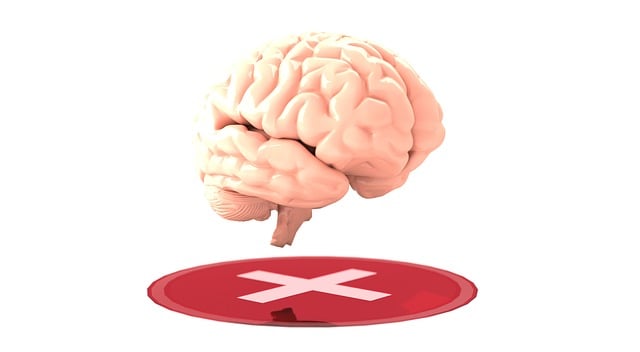Highlands Ranch Mental Health: Marketing CPT Apps Effectively
Highlands Ranch residents face unique mental health challenges due to their fast-paced lives and clo…….
In the realm of mental health services, Highlands Ranch Cognitive Processing Therapy (HRCPT) has emerged as a transformative approach, offering hope and improved outcomes for individuals navigating various cognitive and emotional challenges. This article aims to provide an in-depth exploration of HRCPT, from its foundational principles to its global impact and future prospects. By delving into its history, methodology, and real-world applications, readers will gain a comprehensive understanding of this innovative therapy.
Highlands Ranch Cognitive Processing Therapy is a specialized form of cognitive behavioral therapy (CBT) designed to address complex psychological issues by focusing on an individual’s thought processes, beliefs, and behaviors. It was developed to help clients identify and modify negative or maladaptive thinking patterns that contribute to emotional distress and impaired functioning. The core components include:
HRCPT has its roots in the cognitive behavioral therapy (CBT) movement, which gained prominence in the late 20th century as an evidence-based approach to treating mental health disorders. Traditional CBT focuses on modifying maladaptive behaviors and thoughts, but HRCPT takes this a step further by emphasizing the intricate link between cognition, behavior, and emotions.
The therapy was initially developed and refined within the context of clinical practice by psychotherapists seeking more effective ways to assist their clients, particularly those struggling with complex trauma, anxiety disorders, and depression. Over time, it evolved into a structured protocol with a strong evidence base, backed by numerous studies demonstrating its effectiveness.
Highlands Ranch Cognitive Processing Therapy has garnered international recognition and adoption due to its adaptability and proven success. It is now used in various countries, including the United States, Canada, the United Kingdom, Australia, and several European nations. This global reach has led to cultural adaptations and translations, ensuring accessibility across diverse populations.
The global mental health services market, valued at USD 407 billion in 2021, presents a significant opportunity for HRCPT. This therapy’s evidence-based approach and focus on long-term skill development make it an attractive option for healthcare providers and payors. As the demand for effective, cost-efficient treatments increases, HRCPT is poised to play a crucial role in shaping the future of mental health care.
Private investment in mental health technologies, including therapy platforms and digital tools, has been on the rise. Many startups are developing innovative solutions based on HRCPT principles, aiming to improve access and outcomes. These investments reflect the growing recognition of cognitive processing therapies’ potential for scalability and personalization.
The integration of technology in mental health care has revolutionized the delivery of HRCPT. Online therapy platforms, mobile apps, and virtual reality (VR) tools are enhancing the accessibility and flexibility of treatment:
AI is transforming HRCPT by enabling personalized treatment plans and real-time feedback:
The development and implementation of HRCPT are shaped by various policies and regulations that ensure ethical practice and quality care:
These policies and regulations play a critical role in:
Despite its proven effectiveness, HRCPT faces several challenges:
To address these issues:
A veterans’ healthcare facility implemented HRCPT for individuals with post-traumatic stress disorder (PTSD). The program included group therapy sessions and online resources tailored to military-specific trauma. Results showed significant reductions in PTSD symptoms, improved quality of life, and increased ability to manage daily stressors. This case highlights the effectiveness of HRCPT in addressing complex trauma.
A school district adopted an HRCPT-based program for students struggling with anxiety disorders. The intervention focused on cognitive restructuring techniques and mindfulness exercises during regular classroom sessions. Post-program assessments revealed decreased anxiety levels, improved academic performance, and enhanced social interactions among the participants.
A primary care clinic integrated HRCPT into their treatment model for patients with major depressive disorder. The therapy was delivered as part of a comprehensive care plan, including medication management and lifestyle interventions. After three months, participants reported substantial improvements in depressive symptoms, leading to increased work productivity and better overall functioning.
To capitalize on these prospects:
Highlands Ranch Cognitive Processing Therapy has emerged as a powerful tool in the mental health arsenal, offering hope and improved outcomes for individuals across diverse demographics. Its global impact and continuous evolution demonstrate its adaptability and effectiveness. As technology advances and our understanding of cognition deepens, HRCPT is poised to play an increasingly vital role in addressing the complex challenges faced by individuals seeking mental health support.
Q: What makes Highlands Ranch Cognitive Processing Therapy unique?
A: HRCPT stands out due to its comprehensive approach, combining cognitive restructuring, behavioral activation, emotion regulation skills, and relational techniques. It goes beyond traditional CBT by addressing the intricate relationship between cognition, behavior, and emotions.
Q: Is HRCPT suitable for all age groups?
A: While initially developed for adults, HRCPT has been adapted for adolescents and older adults as well. Its flexibility allows therapists to tailor the therapy to suit the specific needs and developmental stages of different populations.
Q: How does technology enhance HRCPT?
A: Technology enables personalized treatment by providing tailored cognitive exercises, tracking progress, and offering between-session support. Virtual reality (VR) and artificial intelligence (AI) further revolutionize HRCPT, making therapy more engaging and accessible.
Q: Can HRCPT be delivered remotely?
A: Yes, telehealth platforms allow for remote delivery of HRCPT, eliminating geographical barriers and increasing accessibility. Online resources and mobile apps also facilitate self-managed practice between sessions.
Q: What are the potential challenges in implementing HRCPT on a large scale?
A: Challenges include ensuring trained therapists, maintaining data privacy, and making technology accessible and affordable. However, strategic partnerships, ongoing training, and innovative funding models can help overcome these barriers.

Highlands Ranch residents face unique mental health challenges due to their fast-paced lives and clo…….